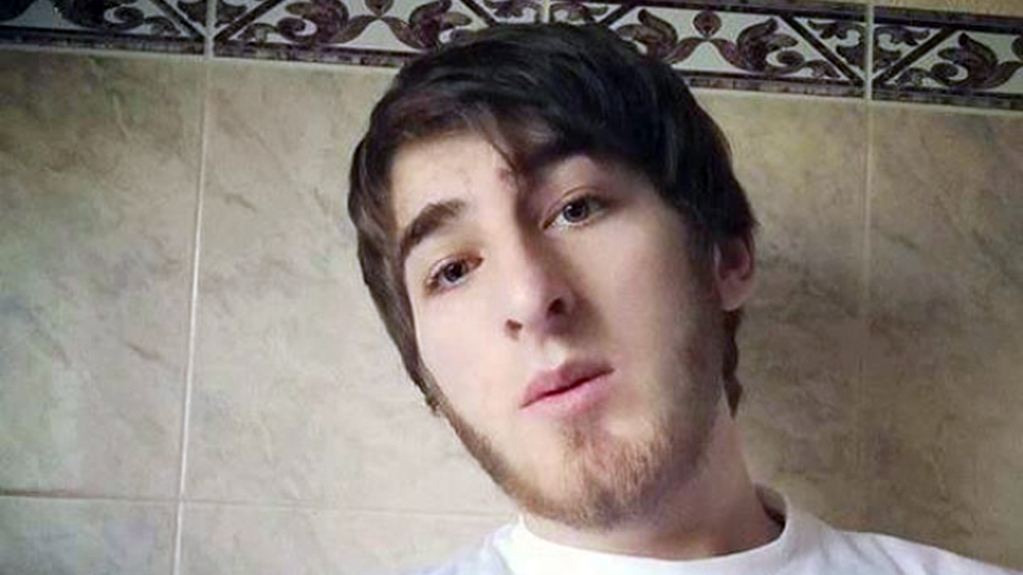There will be no reinvestigation in the case of the attempted assassination of Temirlan Machalikashvili. Today, on June 18, the Special Investigation Service announced that the violations identified by the European Court of Human Rights cannot be rectified, even with a new investigation.
News
Last year, the European Court in Strasbourg, in the case Machalikashvili and others v. Georgia, found a procedural violation of the right to life by the state, citing significant deficiencies in the investigation. Among these, the Court pointed out that the requirement for the institutional independence of the investigation had not been met. The implementation of the Court's decision is overseen by the Committee of Ministers of the Council of Europe, which in March 2024 urged the state of Georgia to promptly review the materials of Machalikashvili's case in line with the Court's findings and to notify the deceased's family about the decision to reopen the investigation.
The Special Investigation Service states that the recommendation of the Committee of Ministers of the Council of Europe does not include a call for the resumption of the investigation; rather, "it only stipulates that the investigative body will review the case and consider whether it is appropriate to resume the investigation."
The Special Investigation Service requested Machalikashvili's case from the prosecutor's office for study, thoroughly examined it, and concluded that there was no justification for reopening the investigation, as explained below:
"The European Court's assessment indicates that following the incident involving the fatal wounding of Temirlan Machalikashvili during a special operation, the initial investigative action was conducted by an employee of the State Security Service, who cannot be considered independent. The Service thoroughly examined this issue and clarified that even if the initial investigation had been carried out by personnel from an independent investigative agency, there would still have been a risk of evidence tampering, given the reasonable time required for them to reach the scene and the continued access to evidence by the agency conducting the operation. Nevertheless, numerous other investigative measures were implemented to mitigate such risks in the case.
Regarding the possibility of reopening the investigation concerning this particular violation, the Service determined that it would be impractical. This conclusion arises from the fact that the execution of the search is an established event, and even in the event of a renewed investigation, replicating the initial investigative actions under the same circumstances would yield no different outcome.
The European Court highlighted as a flaw the limitations faced by the prosecutor's office in assessing the planning and oversight phases of the operation. In response, the Service explained in its resolution that no documentation or reports were compiled before, during, or after the special operation, and therefore, such documents cannot be retrieved or produced physically. Moreover, the State Security Service was not legally obligated to create such records.
Another issue raised by the European Court is the delayed interrogation of State Security Service personnel involved in the special operation. The Service concluded that there was no evidence suggesting criminal intent behind the delayed questioning. The delay was attributed to the declassification of secret documents, after which law enforcement officers were legally permitted to participate in investigative actions. Despite the delay, the special forces provided comprehensive information to the investigation regarding the incident. It should be noted that the potential for aligned testimonies hypothetically exists due to their shared agency affiliation and long-standing acquaintance. However, the investigation's objectives regarding the questioning of these personnel and obtaining detailed information from them about the incident were fulfilled. Therefore, there is no reasonable basis or justification for reopening the investigation in this regard.
Furthermore, the European Court noted that the applicants were denied access to confidential case materials, limiting their ability to participate in the investigation. The Service examined this matter and evaluated whether it warranted reopening the investigation. It concluded that the delayed disclosure of confidential materials did not significantly impair the investigation's outcome. The special procedures and assessments concerning classified documents were duly considered. Despite the limited involvement of the complaining party due to delayed access to classified materials, the investigative body conducted numerous other actions and measures to ascertain crucial facts in the case. Eventually, the complaining party gained access to the confidential case materials and the information therein. However, there is no indication suggesting that the delayed disclosure was a deliberate criminal act.
Therefore, the Service maintains that since the violations identified by the European Court's decision do not justify reopening the investigation and these deficiencies cannot be rectified even with a new investigation, it would not be prudent or appropriate to initiate a reinvestigation," stated the Special Investigation Service.
On December 26, 2017, 19-year-old Temirlan Machalikashvili was fatally shot in the head by special forces in his bedroom during a special operation in the Pankisi valley. The State Security Service accused Temirlan Machalikashvili and several others living in the Pankisi valley of aiding Akhmed Chataev and his group, recognized as international terrorists. Despite being wounded, Machalikashvili died on January 10, 2018, without having been charged. The others were arrested, tried, and found guilty, subsequently receiving prison sentences. The Prosecutor's Office conducted an investigation into the fatal shooting of Temirlan Machalikashvili under the third part of Article 333 of the Criminal Code, which implies possible abuse of official authority involving violence. On January 25, 2020, the investigation was closed due to lack of evidence of criminal wrongdoing. On March 27, 2020, the Public Defender filed an application with the General Prosecutor's Office requesting the reopening of the investigation, which was not granted. Malkhaz Machalikashvili, Temirlan Machalikashvili's father, staged continuous protests in front of the parliament building in Tbilisi, demanding an investigation into his son's death.















